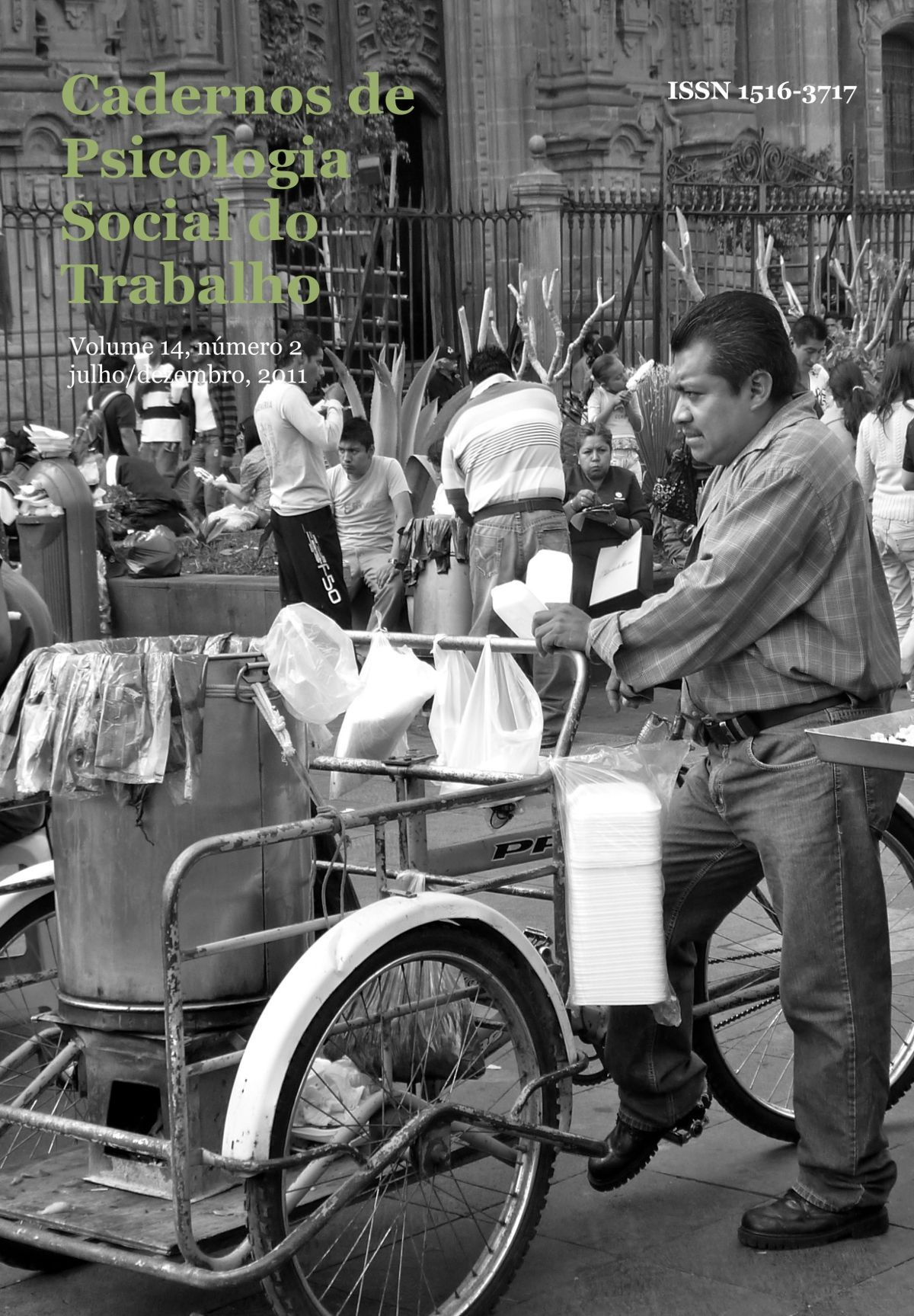A condição de servente na construção civil
DOI:
https://doi.org/10.11606/issn.1981-0490.v14i2p241-262Palavras-chave:
Serventes, Construção civil, Discriminação, Clínicas do trabalhoResumo
Compreender as raízes e o contexto em que é gerada e reproduzida a discriminação da categoria dos serventes na construção civil, bem como suas implicações psicossociais. Esse foi o objetivo norteador de uma investigação desenvolvida através de um estudo de caso, cujos resultados e análises dão corpo ao presente artigo. O trabalho se inscreve nas chamadas Clínicas do Trabalho, na perspectiva da psicossociologia do trabalho. Tomou-se como campo do estudo uma empresa privada de pequeno porte do ramo da construção civil, situada na Região Metropolitana de Belo Horizonte, MG. A pesquisa foi dividida em três etapas: (a) estudos preliminares; (b) observações ergonômicas e entrevistas; e (c) análise das entrevistas e estruturação do texto. Constatou-se uma marcante contradição entre os discursos dirigidos ao servente quando falam de sua atividade a partir do senso comum e aqueles que partem da vivência e da análise do trabalho real desses profissionais. Além disso, revelou-se que a condição de servente encarna um conjunto de características assimiladas como negativas, que dificultam a formação de uma autoimagem e de uma identidade positivas por parte daqueles que são por ela marcados. Identificou-se também que a discriminação da categoria exerce importante função política (controle social) através do enfraquecimento ou mesmo anulação da coesão e organização coletivas. O estudo denuncia a coexistência dos mais sofisticados mecanismos de produção e a sujeição de seres humanos a relações/situações de vida e trabalho humilhantes e/ou degradantes, contradição classificada como ética e moralmente insustentável. Ele sugere ainda que a negligência de investimentos focados no desenvolvimento humano, no contexto de trabalho, mostra-se contraproducente, mesmo que sob a lógica do lucro. Finalmente, as considerações apontam para a necessidade de criação de outro conceito de trabalho em nossas sociedades.Downloads
Downloads
Publicado
Edição
Seção
Licença
Autores que publicam nesta revista concordam com os seguintes termos: autores mantém os direitos autorais e concedem à revista o direito de primeira publicação, com o trabalho licenciado sob uma Licença Creative Commons Attribution, permitindo o compartilhamento do trabalho com reconhecimento da autoria do trabalho e da publicação inicial nesta revista. Autores têm autorização para assumir contratos adicionais separadamente, para distribuição não-exclusiva da versão do trabalho publicado nesta revista (ex.: publicar em repositório institucional ou como capítulo de livro), com reconhecimento de autoria e da publicação inicial nesta revista. Autores têm permissão e são estimulados a publicar e distribuir seu trabalho online (ex.: em repositórios institucionais ou na sua página pessoal) a qualquer ponto antes ou durante o processo editorial, já que isso pode gerar alterações produtivas, bem como aumentar o impacto e a citação do trabalho publicado.







